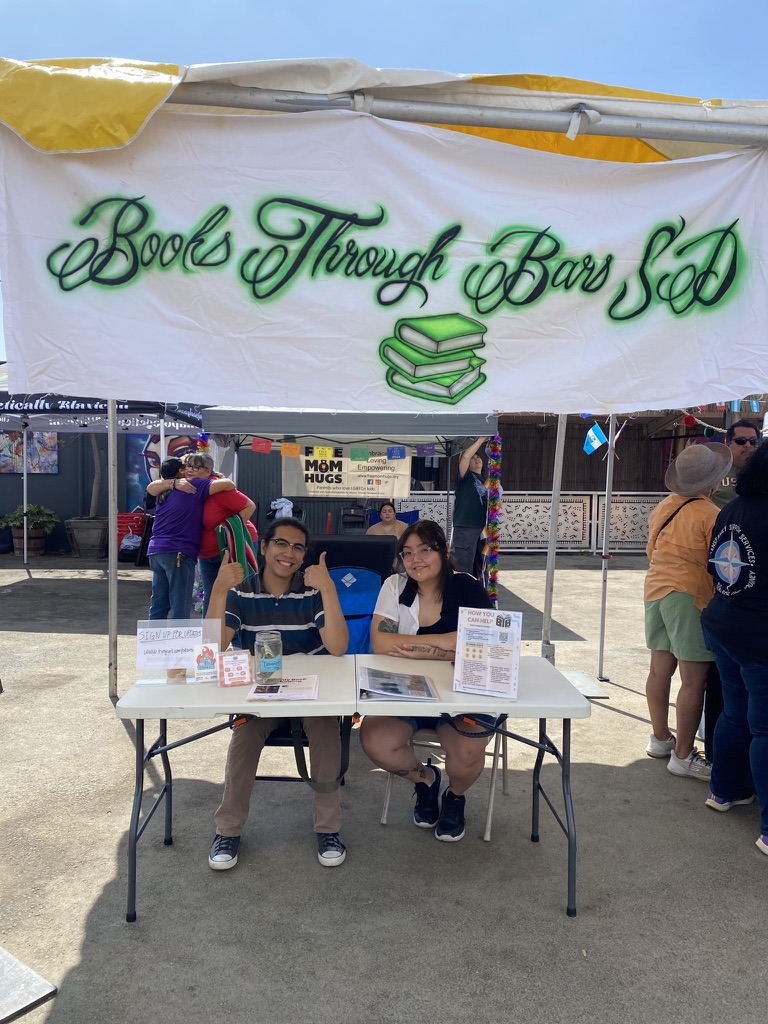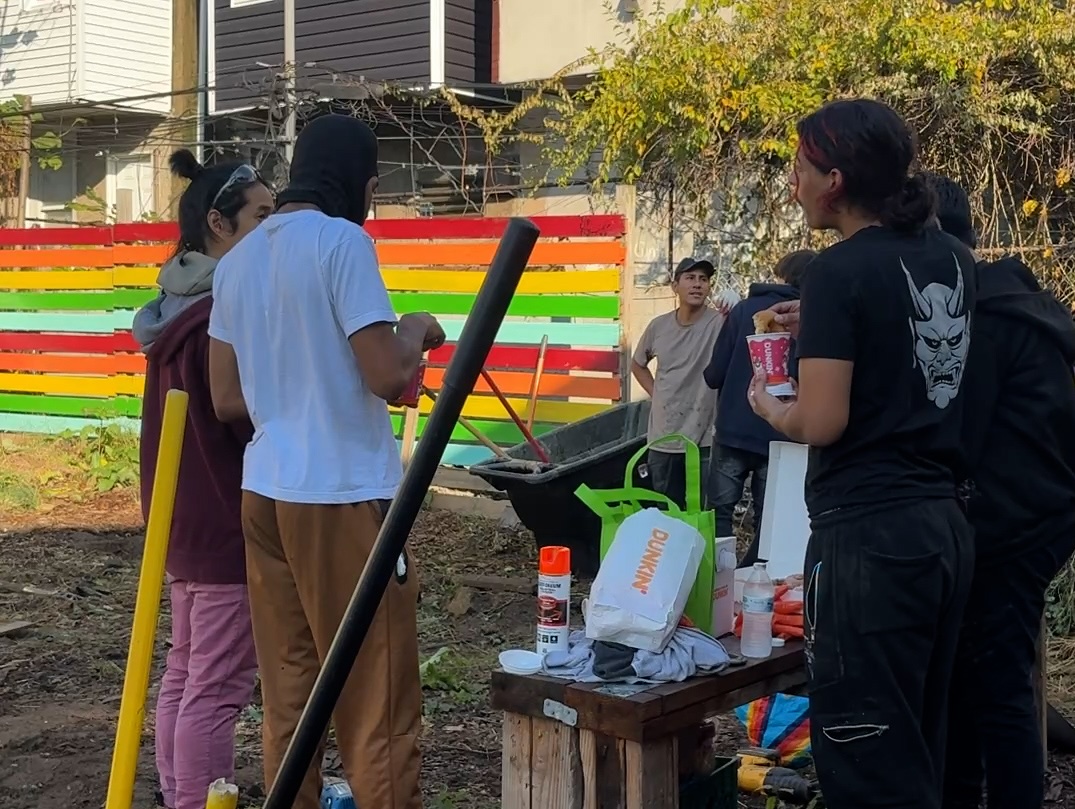(FONTANA, Calif.) — Results of the 2024 election have tested California’s progressive identity, especially with respect to criminal justice reform. With the failure of Proposition 6, which sought to abolish involuntary servitude in prisons, and the passage of Proposition 36, classifying some non-violent offenses as felonies, advocates are questioning the path forward. For many, the answer lies in one powerful tool for change: education.
Sitting in the chairs of a courtroom at 12 years old awaiting a decision that would impact her life, with her feet dangling off the ground, Jacqueline Rodriguez was arrested on charges of a nonviolent crime. Each day, she challenged the system and would speak up against any wrongdoing that occurred to her behind bars. At the age of 16, she managed to get herself out of the system. Over time, she has raised a daughter and son and enrolled at the College of San Mateo and went on to graduate from the University of California, Los Angeles in 2022. Her story shows the transformative power of education in disrupting cycles of recidivism.
As a formerly incarcerated youth, Rodriguez overcame a difficult upbringing and systemic barriers, as she is now halfway through her second year at Stanford Law School. Recounting her early experiences in juvenile detention, she said, “We were all mixed up- everyone’s in different grades. I [was] sat in the back, getting straight A’s but not really learning anything.”

A handwritten letter by an incarcerated individual mailed to Books Through Bars which reads, “Even though I’m locked up, I can still travel as far as the next book will take me. Thank you.” [Credit: Books Through Bars SD]

Jacqueline Rodriguez at her graduation for her bachelor’s degree at the University of California Los Angeles. [Credit: Jacqueline Rodriguez]
As the state’s political landscape shifts from having a majority of the counties being blue-leaning to now red, the stability of programs that provide educational opportunities in prisons is increasingly uncertain. Investment in education both behind bars and in the formative years for an individual is critical and a practical solution to systemic harm.
Organizations such as Books Through Bars (BTB), at the University of California Irvine and University of California San Diego campuses, are bridging the gap. Despite the systemic obstacles like book bans imposed by the California Department of Corrections and Rehabilitation (CDCR), which prohibits over 1,600 titles including “The Handmaid’s Tale,” “48 Laws of Power,” and more, the two organizations are still finding ways to ensure that those seeking book titles receive them.
Sarina Vega is a current master’s candidate in the Landscape and Architecture program at the University of Southern California, she is a collective member for BTB at UC San Diego. She notes that the organization responds to more than 150 letters each month requesting books. Founded by UC San Diego alumni in the early 2010s, it operates as a volunteer-run mutual aid organization outside of the university structure relying on community donations and volunteer efforts. “Reading and books are everything… people on the inside [of these facilities] should have access to that, it should not be regulated,” Vega said.
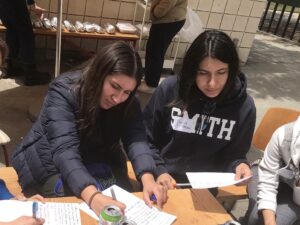
Sisters Parisa Vega (left) and Sarina Vega (right) during an organizational meeting. [Credit: Books Through Bars]
“Books offer a sanctuary,” she said, reflecting on the impact of the program so far. She offered to assist others who are interested in setting up their own programs to “make it accessible for everyone to use so that we can build off each other… anyone can contribute their skill sets.” Despite challenges with limited resources, BTB at both campuses also helps connect incarcerated individuals to vital resources such as legal help, expanding their efforts through events and partnerships.
Education for Liberation: The Youth Justice Coalition of Los Angeles’ Fight for Transformative Justice
The evolving political climate has required many grassroot-based groups to be on high alert, bringing conversations for solutions beyond punitive measures to the forefront. Advocates like the Youth Justice Coalition (YJC) have spent more than two decades lobbying for systemic change within Los Angeles County, seeking to dismantle the school-to-prison pipeline and creating opportunities for systemic-impacted youth.
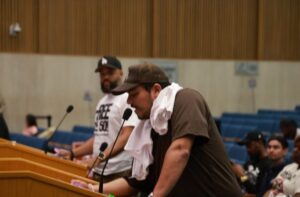
Emilio Zapién speaks on panel. [Credit: Emilio Zapién]
The organization has established a small charter school, FREE (Fight for the Revolution that will Educate and Empower) L.A. High School to serve system-impacted youth in South-Central LA and neighboring areas. The school operates without school resource officers or any law enforcement and instead utilizes the concept of peace building to run its programs.
Two formerly incarcerated individuals teach the students safety replicated through emphasized topics such as trust and consistency within relationships. Zapién said the program is “practicing transformative justice, as an alternative to punishment and harm.” He also provided insight on trauma-informed practices as a way of navigating conversations with marginalized youth, which not only focuses on academics, but the emotional and psychological well-being of the students.
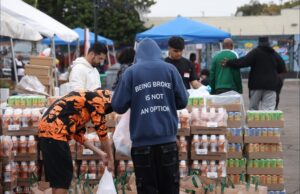
Community members organizing packages for Youth Justice Coalition’s annual Turkey Drive. [Credit: Youth Justice Coalition LA Instagram]
A significant number of youths within the state of California identify as being system-impacted. According to a recent study conducted by the Administration for Children and Families, as of 2022 approximately 45,924 children were in foster care, making California the state with the greatest number of foster placements. Juvenile arrests also remain a concern, with 50.1% of arrests being for felony offenses and 40% for misdemeanors in 2023. These statistics highlight the critical need for educational and support programs to directly challenge and address the multifaceted obstacles that at-risk youth face within the state.
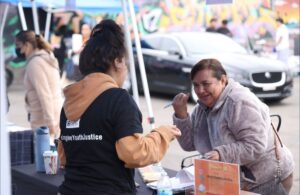
Volunteers greet with community members at the annual YJC Turkey Drive. [Credit: Youth Justice Coalition LA Instagram]
Despite political setbacks, Zapién remains hopeful on behalf of the YJC. “Our people give me hope, our team is so tough and resilient, [ with] what we do at our space. It’s not perfect, its messy, staff members have been directly impacted by a lot of these issues [while] holding space for others, it gives me a lot of that oomph.”
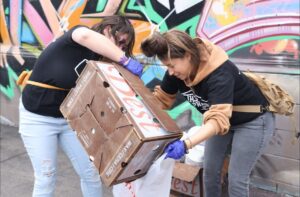
Organizers curating a package to give out at YJC annual Turkey Drive. [Credit: Youth Justice Coalition LA Instagram]
Through this, she discovered advocacy and self-education, with the support of initiatives such as Project Change and the Underground Scholars, “These individuals are motivating me to push forward, to really pursue my career, it’s just so empowering.” Her work extends beyond personal growth, Rodriguez testified in support of legislation such as SB716, which promotes educational opportunities for incarcerated youth.
Paving the Way Forward: Overcoming Resistance to Build a More Equitable Educational System
Barriers have become prominent in recent years; Rodriguez gave light to resistance regarding cooperative career and academic preparation (CCAP) agreements. In the past year, she has conducted research that utilized a comparative legislative analysis model that focused on AB 102 and AB288. Through this, they noted that there was resistance on behalf of some of the colleges. Her work is spotlighting how funding is poured into these programs and how they can be leveraged in order to further the efforts.
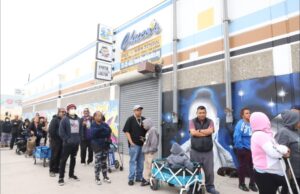
Community members wait in line to receive their needs from the annual YJC Turkey Drive. [Credit: Youth Justice Coalition LA Instagram]
For her, education is a tool that is designed to disrupt generational cycles of harm, “Nothing great comes easy, if it seems difficult- it is still going to be difficult next year, and in two years, so you might as well just get through that hard part right now and make it happen.” She looks forward to continuing her work in curating a more rehabilitative and restorative future for the prison to education pipeline.
Education is proving itself to be an effective tool in breaking cycles of recidivism. The determination to extend this narrative on behalf of advocates and other community members remains steadfast among activists.
California’s identity as a leader in reform now hinges on its ability to uphold and further expand these efforts, as a way of proving that equitable solutions can rise even in the face of adversity within politics.
“I think it’s really important to keep the development of these programs going and the momentum of that… the more we push, even if it is one more state that is looking at us and thinking ‘Wait, California is making all these moves’ that is something. People getting inspired from [this] exposure is so important.” Rodriguez vocalized.
